The ability to customize products and services is becoming a more important factor in businesses success. Customization offers individuals the opportunity to stand out from their competitors, by providing unique experiences for customers that can’t be replicated elsewhere. It allows companies to tailor products and services according to customer needs, giving them an advantage over other organizations within their industry. This article will discuss how customization can help you stand out in your industry and provide examples of some successful implementations.
Customization has become increasingly popular in recent years due to its potential benefits for both customers and businesses alike. By allowing customers to create personalized experiences, companies are able to better meet individual requirements while also increasing overall sales levels as well as enhancing customer loyalty. Furthermore, by customizing products or services according to specific customer requests, businesses have the chance to differentiate themselves from competition – making it easier for them to gain market share within their industry.
Utilizing customization strategies effectively requires careful planning and implementation. To truly make the most of this practice, companies must consider both short-term performance goals such as increased sales volume and long-term objectives like brand recognition and customer loyalty building. Understanding these objectives is essential for creating effective strategies that focus on delivering superior value for customers at every stage of their journey with your company.
Definition Of Customization
Customization is a term that is often used to refer to the process of altering products and services according to individual preferences. It involves tailoring existing offerings in order to meet the unique needs of each customer, creating a product or service that provides value for them. The customization meaning can be further broken down into two distinct parts: defining customization and explaining customization.
Defining customization means understanding what it is intended to accomplish; this includes both how one should go about customizing an offering as well as why they would want do so. Explaining customization entails relating how it will benefit customers by providing them with products and services tailored specifically to their own wants and needs. Consequently, it allows companies to differentiate themselves from competitors while delivering higher levels of satisfaction among consumers. Transitioning into the benefits of personalization, many organizations are now leveraging these strategies in order to gain an edge in their respective industries.
Benefits Of Personalization
Customization has the potential to provide a number of benefits, including industry differentiation, unique offerings and brand recognition. Personalization allows businesses to customize products or services to their customers’ specific needs and preferences, which can help them stand out from competitors in their industry. By offering customized solutions tailored to individual users, companies can establish themselves as leaders in their field by providing an experience that is both memorable and meaningful for customers.
Personalized experiences are more likely to be remembered than generic ones, helping business owners build stronger relationships with customers over time. Additionally, personalizing products and services gives companies the opportunity to distinguish themselves from others in their industry through differentiated offerings. This can be particularly useful when competing against larger firms with established brands; customizing offers makes it easier for smaller businesses to compete on equal footing by creating unique offerings that meet customer demands better than those offered by rivals. Finally, developing personalized products provides an excellent way for small businesses to gain recognition and build trust among current and potential clients alike, leading to increased sales and long-term success.
The Need For Differentiation
In an increasingly competitive industry, businesses require differentiation and diversification to stand out from their competitors. Without these strategies in place, a business may struggle to achieve success and visibility in its field. To differentiate itself, the business must think creatively and find ways to express its uniqueness through product offerings or customer service experiences. This requires going beyond traditional methods of marketing and engaging with customers on different levels that will leave them feeling satisfied with the company’s brand. The need for differentiation is essential for any business hoping to make a name for itself within its industry due to the large amount of competition present today. It allows companies to become more visible by providing something unique that others cannot offer as easily. Transitioning into this next section, it is important to consider how businesses can create successful strategies that support differentiation and allow them to stand out in their industry.
Strategies To Differentiate Your Brand
Customization strategies can be used to differentiate a brand from its competitors. One way to do this is by providing unique products or services that are tailored specifically to the needs of customers. This could involve creating custom-made offerings, or offering packages and special discounts which provide value for money. Additionally, businesses should consider utilizing differentiation tactics such as segmenting their target markets in order to better understand what appeals to each group. This will allow them to create more effective and targeted marketing campaigns that reach out to each customer base effectively. By using these strategies, companies are able to establish a distinct identity and create customized solutions that meet the individual needs of consumers while also ensuring they stand out amongst other brands within the same industry. Transitioning into the subsequent section, it is important for businesses to know how best to incorporate customization into their business model in order to maximize potential benefits.
How To Incorporate Customization Into Your Business Model
Customizing your business and services can help you to stand out in your industry. To incorporate customization into your model, you must tailor products and services to meet the individual needs of customers. This is done by providing a range of options for each product or service that allows customers to personalize their purchase. Customers should be able to customize everything from color and size to delivery methods and other features. Additionally, businesses must define customer segments so they can better target them with more personalized offers.
In addition, it’s important for businesses to measure the success of any customized offerings. Businesses need to understand what types of customizations are successful at increasing sales and profits as well as those which do not resonate with their target markets. By understanding how well customizations perform, companies can make decisions on where best to invest resources when creating new custom items or improving existing ones. Transitioning into analyzing the impact of customization will give businesses insight into whether incorporating this approach is beneficial for their operations long-term.
Analyzing The Impact Of Customization
Customization can have a profound impact on businesses and their industries. Through customization analysis, it is possible to assess the benefits of personalization that can be gained from being able to differentiate one’s brand or business model. This differentiation analysis will enable companies to further stand out in fast-evolving markets, allowing them to capitalize on newer technologies as well as customer preferences.
Customizing products and services through personalized experiences can help create loyal customers who are more likely to purchase again due to their positive experience with the company. This increases customer retention and leads to increased revenue over time, while also having the potential for referrals and word of mouth marketing which helps extend reach even further. Additionally, customizing creates distinct advantages in terms of competition: when creating unique solutions tailored specifically for customers’ needs, competitors cannot replicate those same services at scale without significant investment into research and development. Thus, customization provides an effective way for businesses to gain recognition within their industry by standing out among competitors via product/service differentiation.
Frequently Asked Questions
What Are The Costs Associated With Customizing Products And Services?
Customizing products and services can be an expensive process. Costs associated with customization depend on the scope of the project, type of product or service being customized, and how much labor is required to complete the job. Some common costs of customization include materials, time spent designing, labor costs and outsourcing fees.
When customizing a product or service, it’s important to consider what kind of value this will bring to your customers. It’s also necessary to factor in any additional resources that may be needed such as specialized software and staff training. The cost for these items should be taken into account before beginning a customization project so that you can budget accordingly.
The following are examples of expenses typically encountered when customizing products and services:
- Materials – Depending on the complexity of the product or service being customized, materials such as speciality hardware, tools, paints, fabrications etc., may be required which could add up quickly if not planned for properly.
- Labor Costs – If there is design work involved like creating logos or patterns then hiring a graphic designer might be necessary. In addition to wages for those who physically construct the item itself, other overhead charges like insurance policies need to be factored into overall costs too.
- Outsourcing Fees – If outsourcing parts of the production process is necessary due to lack of experience or equipment within your company then additional fees for outsourcing must be included in final costing calculations.
Ultimately it is important to understand all potential costs prior to committing to customize a product or service in order ensure profitability margins remain intact after completion of the project.
What Are The Potential Downsides Of Customization?
Customization is a popular tool for businesses to differentiate their product or service from competitors and stand out in their industry. However, there are potential drawbacks associated with customizing products and services. Common customization drawbacks include increased costs, complexity of implementation, technical issues, data privacy concerns, and customer dissatisfaction.
Increased costs may be incurred when customizing products or services as additional resources may need to be allocated towards development and maintenance. This could affect the bottom line significantly if not managed properly by taking into account all customization risks. Additionally, the complexity of implementing changes can cause delays in delivery timelines due to unforeseen challenges that arise during the process. Technical issues such as compatibility problems between systems might also occur which could disrupt operations further down the line. Moreover, customers’ personal data may be compromised if proper security measures are not taken to protect it while undergoing customization processes. Lastly, customers’ expectations may not always align with what is being delivered leading to dissatisfaction with the final product or service provided after customization efforts have been made.
Therefore it is important for companies to assess any potential downsides prior to committing resources towards customizing products or services in order to ensure that they gain maximum benefits while mitigating any possible risks and pitfalls along the way.
How Do You Measure The Impact Of Customization On Customer Satisfaction?
Measuring the impact of customization on customer satisfaction is a vital step in evaluating its effectiveness. It allows business owners to understand the value it adds to their customers’ experiences and determine if any improvements are needed. Customer satisfaction can be gauged through different methods, including:
- Surveys: Surveys provide insight into how customers perceive your products or services after they have used them. They can also help gauge whether or not customization has improved customer experience.
- Analysis of purchase data: Tracking customer purchases over time gives an indication as to how customization has impacted their buying decisions. This helps you identify trends that may suggest areas for improvement in the level of customizations offered.
- Reviews & feedback: Reading reviews and collecting feedback from customers about their experience with customized offerings provides valuable insights into what is working well and where there may be room for improvement.
By measuring the impact of customization on customer satisfaction, businesses can make informed decisions regarding which aspects should be further developed, adjusted or removed altogether in order to optimize the overall customer experience. This ensures that investments made in creating tailored solutions are being utilized effectively and delivers maximum return on investment while helping the company stand out from competitors within the industry.
What Types Of Customization Are Most Effective In Different Industries?
Customization can be a powerful tool for businesses seeking to stand out in their industry. The most effective types of customization vary depending on the industry, and understanding these varying strategies is key to success. To truly understand what types of customization are most effective in different industries, it’s important to consider various customization options available:
- Industry-specific Customizations: These customizations focus on creating offerings tailored specifically to an industry or sector. An example could include offering specialized services that address particular needs associated with a certain market segment.
- Innovative Customizations: Companies may also choose to create innovative products or services that can provide customers with unique experiences and solutions they cannot get elsewhere. For instance, this could involve using new technology to develop cutting-edge designs or features that set them apart from competitors.
- Tailored Customizations: Finally, companies may opt for more tailored customizations such as personalizing customer experiences through customized marketing messages or providing personalized product recommendations based on individual preferences.
These strategies allow firms to target specific audiences and build relationships with customers by addressing their unique requirements and interests. By implementing such customized approaches, organizations can gain competitive advantages over other players in their respective markets; resulting in improved customer satisfaction levels and increased brand recognition.
How Do You Ensure That Your Customizations Are Compliant With Legal And Regulatory Requirements?
When it comes to customizing products and services for a specific industry, there is an important consideration that must be taken into account: legal and regulatory compliance. Companies need to ensure that their customizations are in line with all applicable laws and regulations, as non-compliance can lead to costly fines or other penalties. Therefore, understanding the legal landscape within one’s field of business is essential when pursuing customization.
To ensure compliance with legal requirements, companies should seek expert advice from attorneys specializing in relevant areas such as contracts, labor law, intellectual property protection, environmental protection and safety standards. It is also advisable to consult with any related industry associations or trade organizations whose rules may affect the company’s customization efforts. Furthermore, businesses should have systems in place to monitor changes in the regulatory environment so they can adjust their customizations accordingly.
By taking these steps prior to implementing customized solutions for their target industries, companies can avoid potential risks associated with non-compliance while still gaining significant advantages through the strategic use of customization. By leveraging tailored approaches instead of off-the-shelf solutions, firms can more effectively differentiate themselves from competitors and better meet customer needs – provided that proper due diligence has been performed on all aspects of the project’s legality.
Conclusion
The use of customization to stand out in an industry can be a powerful tool, but it is important to consider the costs associated with customizing products and services. Additionally, it is essential to measure the impact of customization on customer satisfaction to ensure success. Finally, depending on the type of industry, different forms of customization may be more effective than others and must take into account any legal or regulatory requirements that need to be met.
In conclusion, when considering ways to gain a competitive advantage in one’s industry, customization should not be overlooked as a potential strategy. It is important for businesses to understand what types of customizations are possible within their specific sector and how those modifications could help them stand out from the competition. By weighing the pros and cons carefully before making decisions about customization, businesses will likely find that this approach can provide numerous benefits without incurring excessive costs.











